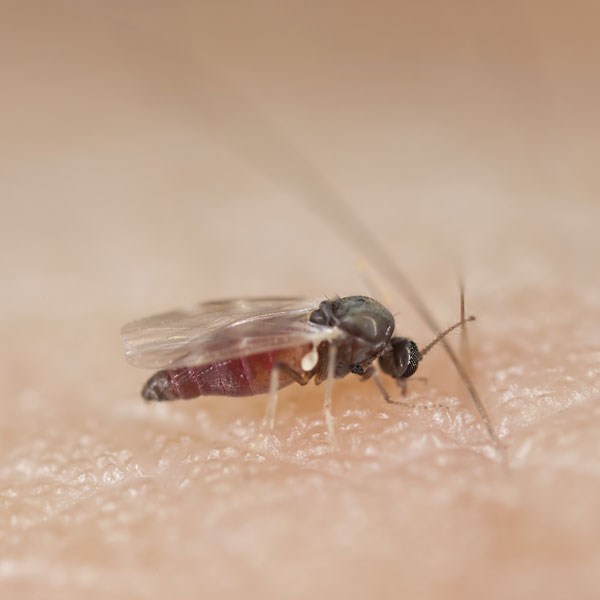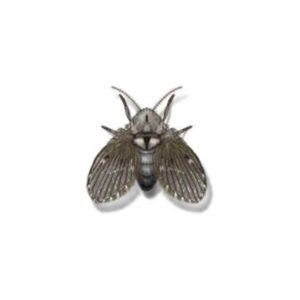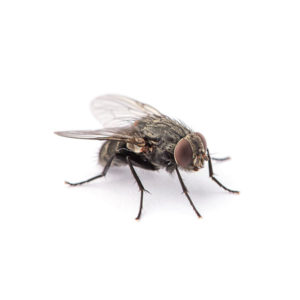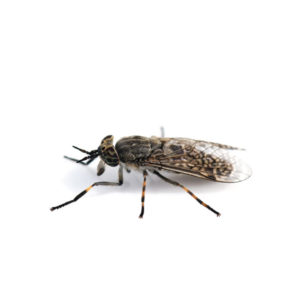Black Flies in North Jersey
Black flies are small blood-sucking insects found all over the world. There are dozens of species. Here in New Jersey these pests, also known as buffalo gnats or turkey gnats, will hover around people’s heads, and may even try to get into eyes and ears or hair. Black flies are known for biting people, but only the females do this. During the spring and summer, black flies can be found swarming in large numbers.
Black breed in moving water. Their larvae and pupae develop in clean, flowing water that has a high level of dissolved oxygen. Immature black flies require oxygenated water to develop, so they can often be found near slow-moving streams, creeks, or rivers. To be clear, the water must be in motion, but it doesn’t have to be a lot of motion. Black flies don’t develop in stagnant lakes or ponds.
Black Fly Behaviors, Threats, or Dangers
Black flies are annoying, especially if you get bit, but the good news is that they’re not known to spread diseases to humans in the United States. They can elicit reactions in humans, however, collectively referred to as “black fly fever.” These symptoms may include headache, nausea, fever, and swollen lymph nodes in the neck. You may also experience swelling at the site of the bite. Aside from being a nuisance, black flies can endanger livestock by transmitting protozoa and nematode worms. If you are grappling with a black fly infestation on your property, call your local pest control company that specializes in fly control.





